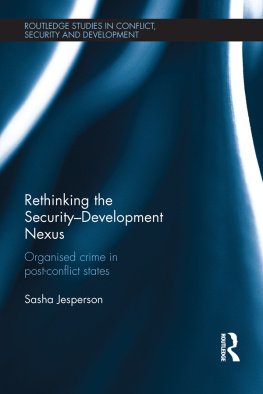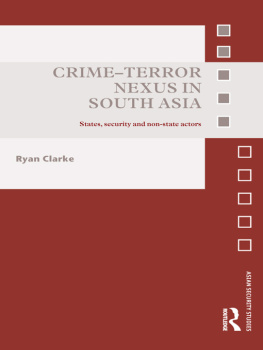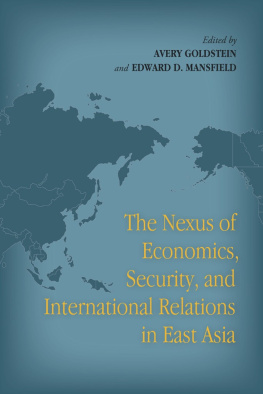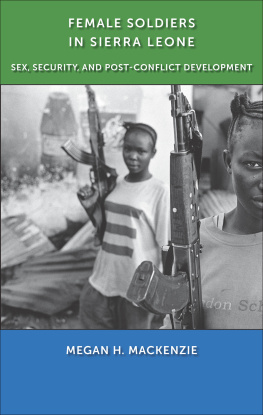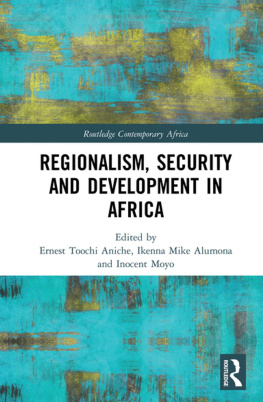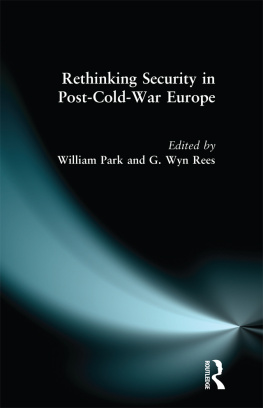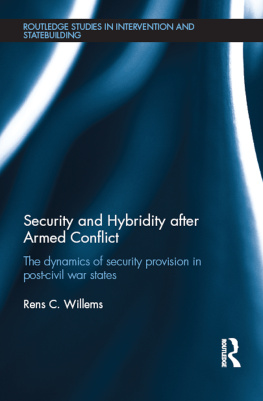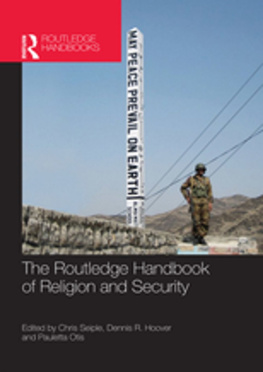Rethinking the SecurityDevelopment Nexus
This book critically examines the securitydevelopment nexus through an analysis of organised crime responses in post-conflict states.
As the trend has evolved, the securitydevelopment nexus has received significant attention from policymakers as a new means to address security threats. Integrating the traditionally separate areas of security and development, the nexus has been promoted as a new strategy to achieve a comprehensive, people-centred approach. Despite the enthusiasm behind the securitydevelopment nexus, it has received significant criticism. This book investigates four tensions that influence the integration of security and development to understand why it has failed to live up to expectations. The book compares two case studies of internationally driven initiatives to address organised crime as part of post-conflict reconstruction in Sierra Leone and Bosnia-Herzegovina. Examination of the tensions reveals that actors addressing organised crime have attempted to move away from a security approach, resulting in incipient integration between security and development, but barriers remain. Rather than discarding the nexus, this book explores its unfulfilled potential.
This book will be of much interest to students of war and conflict studies, development studies, criminology, security studies and international relations in general.
Sasha Jesperson is Research Fellow at the Royal United Services Institute, and has a PhD in Government from the London School of Economics, UK.
Routledge Studies in Conflict, Security and Development
Series editors: Paul Jackson
University of Birmingham
and
Mark Sedra
University of Waterloo
Designed to meet the needs of researchers, teachers and policymakers in this area, this series publishes books of new, innovative research in to the connections between conflict, security and development processes. The series encourages a multidisciplinary approach to the links between these thematic issues, including the nature of conflict itself and the underlying conflict drivers, the underlying characteristics and drivers of insecurity, and the effects and use of development strategies in post-conflict environments and how that relates to broader peacebuilding strategies.
Security Sector Reform in Conflict-Affected Countries
The evolution of a model
Mark Sedra
Rethinking the SecurityDevelopment Nexus
Organised crime in post-conflict states
Sasha Jesperson
First published 2017
by Routledge
2 Park Square, Milton Park, Abingdon, Oxon OX14 4RN
and by Routledge
711 Third Avenue, New York, NY 10017
Routledge is an imprint of the Taylor & Francis Group, an informa business
2017 Sasha Jesperson
The right of Sasha Jesperson to be identified as author of this work has been asserted by her in accordance with sections 77 and 78 of the Copyright, Designs and Patents Act 1988.
All rights reserved. No part of this book may be reprinted or reproduced or utilised in any form or by any electronic, mechanical, or other means, now known or hereafter invented, including photocopying and recording, or in any information storage or retrieval system, without permission in writing from the publishers.
Trademark notice: Product or corporate names may be trademarks or registered trademarks, and are used only for identification and explanation without intent to infringe.
British Library Cataloguing-in-Publication Data
A catalogue record for this book is available from the British Library
Library of Congress Cataloging-in-Publication Data
Names: Jesperson, Sasha, author.
Title: Rethinking the security-development nexus : organised crime in post-conflict states / Sasha Jesperson.
Description: Abingdon, Oxon ; New York, NY : Routledge, 2017. | Series: Routledge studies in conflict, security and development | Includes bibliographical references and index.
Identifiers: LCCN 2016028613| ISBN 9781138200081 (hardback) | ISBN 9781315515298 (ebook)
Subjects: LCSH: National securityEconomic aspects. | Internal securityEconomic aspects. | Postwar reconstructionEconomic aspects.
Classification: LCC HC79.D4 J47 2017 | DDC 355/.033dc23
LC record available at https://lccn.loc.gov/2016028613
ISBN: 978-1-138-20008-1 (hbk)
ISBN: 978-1-315-51529-8 (ebk)
Typeset in Times New Roman by Wearset Ltd, Boldon, Tyne and Wear
This book is the end result of my PhD research in the Government Department at the London School of Economics (LSE), so its publication is down to the support and guidance of the LSE community, particularly my PhD supervisors Denisa Kostovicova and Mary Martin.
Since leaving the LSE I have also had the opportunity to further develop the ideas initiated by my PhD research and conduct further fieldwork in West Africa as a research fellow at the Royal United Services Institute, which has only strengthened the arguments advanced.
The research also benefitted from the generosity of the individuals interviewed in Sierra Leone and Bosnia, both for taking the time to speak with me but also in being open about their experiences in addressing organised crime.
Perhaps just as important during the research and writing process were the other parts of my life. Regents Canoe Club deserves a special mention for maintaining my sanity throughout this period: there is nothing like a wild river to stop thinking about organised crime and conflict.
Through kayaking I also met some of the most encouraging and supportive people I have had the fortune to spend time with. They have listened to me talk through the difficult areas, maintained my worklife balance, and even brought my beloved black and red Staedler pencils to Canada. My family, both in Australia and Canada, have also been of tremendous support, not least for packages of rescue chocolate.
The greatest contributor to bringing this research to publication has been Peter Bale. His unerring encouragement, the patient reading and rereading of every word, and keeping on top of everything else so I could focus, means this achievement is as much his as it is mine.

